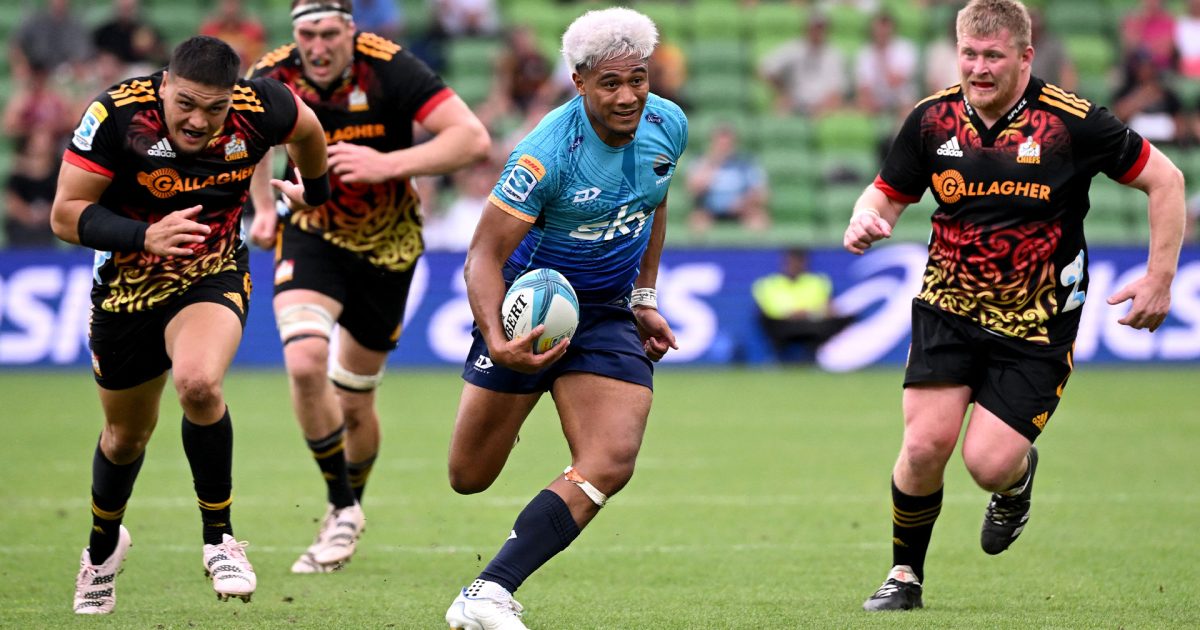New Super Rugby laws exposing team depth and player fitness

The new Super Rugby Pacific laws have undoubtedly changed the pace of the game, speeding up all set-piece play and reducing tolerance for slow ruck clearances and minor injury stoppages has seen a significant increase in ball-in-play time and points scored.
In round one of Super Rugby Pacific, the average ball-in-play time was a whole two minutes higher than the 2022 season average and in round two, there was an average of 78.8 points scored across the six matches.
Nearly a point per minute provides plenty of action for fans, but there were some concerns that the huge scorelines could dilute the product over time. Those concerns were laid to rest by former All Black halfback Justin Marshall, who said the changes are healthy for the game and the scores will level out as players adjust to the new speed.
“I think it’s good,” Marshall told The Platform. “I think it’s healthy for the game. The fact that we are now having players fatiguing because the ball is in play more and you’re getting rewarded for good continuity, you’re getting rewarded because the defence isn’t always fresh.”
Marshall reaffirmed the notion that fatigue results in errors and in rugby, errors result in points. The pressure is now on the teams to better navigate not just the quantity of minutes players get through, but the quality of play they can produce in those minutes.
Not allowing fatigue to influence the technique or effort of each play is easier said than done, and Marshall went on to highlight how the emphasis has now swung back to individual fitness levels after an era of analytical growth.
“The thing about the game is now that it’s so heavily analyzed that most of these sides know what’s coming at them from the opposition, they’ve done their homework, but there’s no supplement for that when players are tired, because like I said, they won’t make that tackle that they would usually make because they are fatigued and they don’t get in the right position and they get brushed or they get fended or stepped, whatever it might be.
“Look, it’ll pull back because players will adjust and everyone will learn to use their benches and everything better, so the points will eventually come back a bit. But, at the moment it’s about the teams and players learning that the game has sped up and the ball is in play more and I’ve got to get fitter, and I’ve got to make sure that when I’m tired that I’m getting myself into good positions.”
















